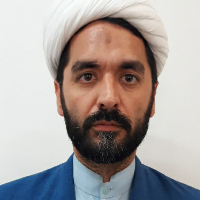Higher Education Curriculum from the Perspective of Jurisprudential Rules
One of the important segments of the educational system of any country is the higher education, the task of which is to train specialized personnel in various economic, managerial and administrative fields. Higher education curricula (i.e. the scientific content being taught) play a key role in achieving its goals. In this research, an attempt is made to examine the content requirements of higher education from the perspective of Islamic jurisprudence. That is, the main question is what knowledge and content is a priority and should be given preference in terms of jurisprudence. The method used by the present study is inferential and descriptive-analytical. The results of the research indicate that according to the rule of cooperation to do good deeds (birr), it is preferable in higher education to deal with knowledge whose learning is an example of a good deed or a prelude to benefiting individuals and society. Considering the maxim of preserving the system of education, teaching sciences that are instrumental in maintaining the system and serving the Muslim community is desirable (obligatory or recommended) according to Shari'a. Also, sciences can be divided based on the amount of the material and spiritual benefits derived from them; they are preferred on a priority basis depending on the degree of benefits they yield. Given their importance, it is necessary that preference be given to religious sciences over worldly sciences in the sense that the first should be supported and given more importance than the second.
-
Explaining the Reason for the Islamization of Humanities, from the Perspective of Islamic Jurisprudence
*, Seyednaghi Mousavi, Mohammad Zarei
Bi-Quarterly Research Scientific Journal in Educational Jurisprudence studies, -
Behavioral Solutions to Promote Administrative Health with an Emphasis on Nahj al-Balaghah
Mohsen Davoodabadi Farahani, Mahdi Roayaei *
,


